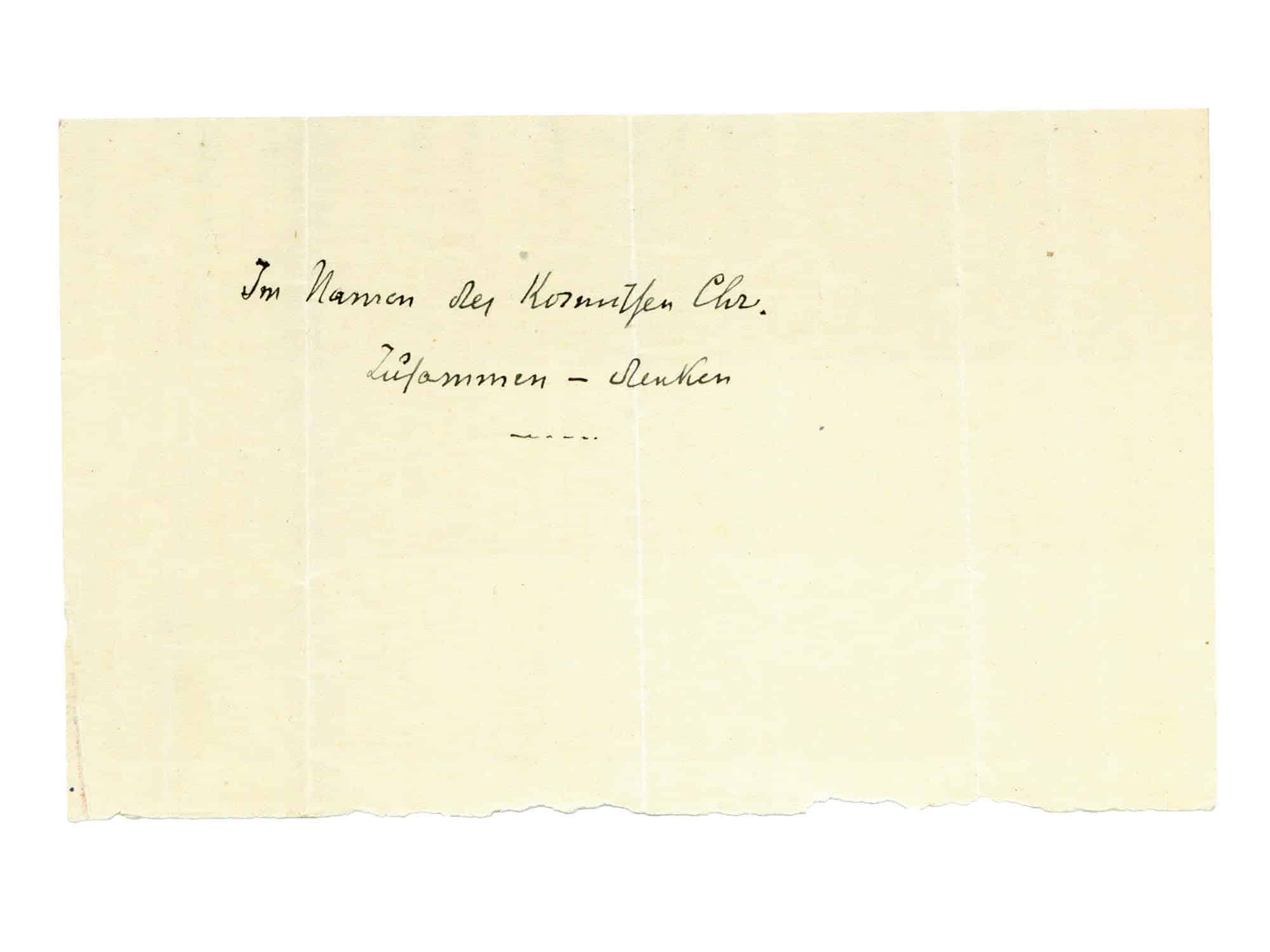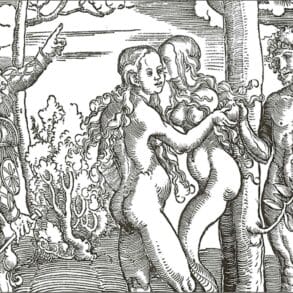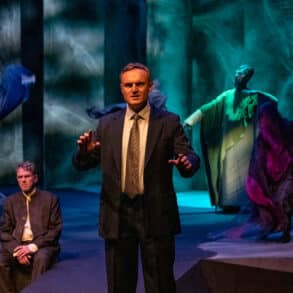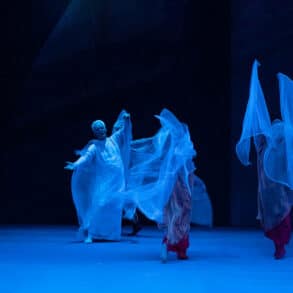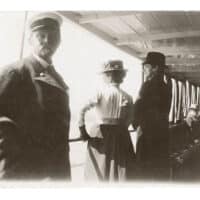Andreas Laudert has written a biography of Rudolf Steiner, Unter den Augen des Himmels [Under the eyes of heaven]. He explores the play between closeness and distance, “being here and now” and “journeying to those before and elsewhere”; he seeks pathways to the heavens. Wolfgang Held sat with him for an interview.
Wolfgang Held: Why did you decide to write a biography of Rudolf Steiner?
Andreas Laudert I was commissioned to do it. I probably wouldn’t have done it on my own initiative, out of a sense of modesty. But I asked myself whether, in the depths of my soul, I could find some justification for writing a biography of Rudolf Steiner. There are already quite a few biographies of him. The question was whether I could find my own approach and inner path to the task.
This led you to the poetic title “Under the Eyes of Heaven”?
I only came up with the title later, after I’d already finished the manuscript. It seemed fitting, with a double perspective: Rudolf Steiner standing under the gaze or protection of a spiritual world that laid great hopes in him, and at the same time, through his work, heaven seems to gaze upon us.
“Wings of destiny” is another poetic phrase in the book.
Steiner didn’t always feel lifted up and “bewinged.” He also had to battle enormous headwinds (to further the metaphor). I was interested in how Steiner inwardly balanced his difficult life situations and the stages in his biography. How did he determine the right step—what is the next step to take now?
You call Rudolf Steiner a “learning teacher”?
It’s a bold leap, so please don’t misunderstand me. I also come from a theological background, and I’ve always experienced the basic gesture of Christ in the Gospels as him wanting to know his time, wanting to know people. He bore the divine force within him, had a task, and had to constantly see how people reacted to him. He was able to open up in different ways, depending on whether he felt there was a sounding board and whether what he said or did would resonate. I think, in essence, Steiner also tried to do everything he could to fulfill this one task he had: to help people understand the spirit in the human essence. How could this reality appear on the Earth? So, he also had to “learn,” so to speak, how to teach in a way that people would understand him and where he could find a connection. He was very interested in his contemporaries and their motivations and was incredibly generous. It’s always about this resonance—the dialog with life. I’m convinced that Rudolf Steiner “learned” things for his task implicitly from his fellow human beings, whether workers at the Goetheanum, children he tutored, or his professors.
That’s a vivid picture you see throughout his biography.
He was always in process. Sometimes, when reading his lectures, we can forget that. I think he had a very exact sense of his audience: How far can I go with what I want to communicate? I imagine him saying to “his” anthroposophists today: You must help me to be able to speak more and more precisely and keep up with the times. You must help me through the way that you listen, so that I’m able to open wide the gates and hold them open. The process of translating what comes from the spirit is never-ending, and, especially in the twenty-first century, it’s a highly contentious and dynamic field. We must all help each other, by speaking and listening, by being “scientific” in the broadest sense—meaning, in research, but also artistically—so that we can continue to keep anthroposophy accessible.
You’ve also said anthroposophists are in danger of sometimes becoming “lobbyists”? What did you mean?
It takes a great deal of attention and honesty with oneself when one tries to speak “on behalf” of Rudolf Steiner. I certainly don’t exclude myself from this. For representatives of anthroposophy, just like political or moral interest groups, it’s often a matter of trying to save face, protecting one’s own interests, maintaining a united front, adopting rules of communication, and so forth. These are ways of closing oneself off and no longer being open.

This openness also has to do with why you invited readers to give Rudolf Steiner the freedom to be more than the founder of anthroposophy.
Yes, and I’m obviously not the only one with the question of what it means to meet Rudolf Steiner with both humility and independence, both free and connected. In this moment, as we approach Rudolf Steiner from the point of view of his death, it means, in a certain way, that all the potential is available again and made free. Maybe we need to try to find a way to see Steiner independently of the Anthroposophical Society, to “separate” him from what’s developed since his death, as a kind of thought experiment; maybe this will lead to ways to then help others not to separate him? A connection could be created directly from the ‘I’ of the individual. Some people have a tendency to want to decouple the so-called positive achievements from Steiner’s name and ultimately cast him away and everything esoteric along with him. I think, if we try to uncover Steiner’s original impulse, which was universal and human, then this deep connection to his work and to the community of people who spread the work around the Earth can come forward in a new way.
That reminds me of Goethe when he says that he can’t say what the character Faust is all about. So, he says that Faust is greater than Goethe himself—yes?
Yes, that’s an apt comparison. Anthroposophy had to come down to Earth, and it was necessary to find people who could understand and would support it. This is how forms arise that have meaning and weight to them. At the same time, anthroposophy goes beyond these forms, because anthroposophy is about humanity.
You talk about the loneliness of the child who can’t ask anyone his questions and the loneliness of the adult who is constantly being asked questions. Two polar forms of loneliness?
Maybe. I think it made him “spiritually” lonely that many people around him didn’t take responsibility for themselves, didn’t become independent, and instead laid all their expectations on him and delegated everything to him.
In the biography, you cite a variety of voices: Franz Kafka, Bertolt Brecht, and even Monty Python. Did you do this to try to help people resonate?
I find it so tragic, and actually fatal, when social milieus, cultural milieus, and spiritual milieus break themselves off from one another and aren’t able to find a way of making contact—letting concepts, mental pictures, and prejudices get in the way. That’s why I think it’s important to bring in voices that are perhaps surprising and whose language can shed new light on Rudolf Steiner and anthroposophy.
The light has many layers: Rudolf Steiner led a bourgeois life and a spiritual life. How did you deal with this complex parallel?
In every situation in his life, I think Rudolf Steiner faced the question: what must I do now to do justice to this spiritual task? As a biographer, my aim was to approach this struggle without presuming to enter or see into his soul. I was asked recently: what would you describe as the new thing your biography adds to what’s already available and perhaps was missing? Well, nothing and everything is missing! I think one must demonstrate a genuine relationship with Steiner’s concerns and have an honest interest in approaching him with a sense of responsibility for oneself. This can inspire others to take responsibility for their own approach, too. If something comes from the source of individuality, if someone enters into a dialog with Steiner’s work in this way, then it is always “new” and invaluable.
So, that’s a kind of advice you can offer to everyone, and probably to yourself, as well. Steiner wanted to give examples, not laws or rules. Or do you think he can be taken from too narrow a view sometimes?
He created many artistic forms in architecture and through eurythmy and the Mystery Dramas. But what is truly artistic is his whole life. What he created are examples and parables of the one, ultimately always the same impulse. I guess it’s all about continuously creating out of the essence, out of the central, spiritual core, out of the spiritual reality, and this creating has to happen in the concrete moments that are arising ever anew. To me, that’s what being an anthroposophist means.
How did you feel when you finished writing the book?

That I remained true to what I see as the essential thing about anthroposophy, the essential thing today.
Now, let me address the theologian in you. In your devotion to Steiner, do you ever have the feeling you’re standing at an altar?
I feel that everything is completely open and that I’m standing before a nothingness with the question: “Where is Rudolf Steiner—now?” I don’t feel any answer; I feel only a deep waiting. This powerlessness, this openness must be “sacred” to us. To me, it’s sacred. Even in regard to my own relationship, my own history with Steiner as a human being, and his karma. I had a picture of him on my desk for a while when I was writing, and I would often think: what is my history with him? How will he feel about my work? I asked myself silently at the deep altar within. Now, the book is in the world. And now, it goes on its way.
Book Andreas Laudert, Unter den Augen des Himmels: Das Leben Rudolf Steiners [Under the eyes of heaven: The life of Rudolf Steiner] (Basel: Futurum, 2025).
Translation Joshua Kelberman
Title image Undated note by Rudolf Steiner, Goetheanum documentation:
“In the name of the Cosmic Christ – thinking together …”

